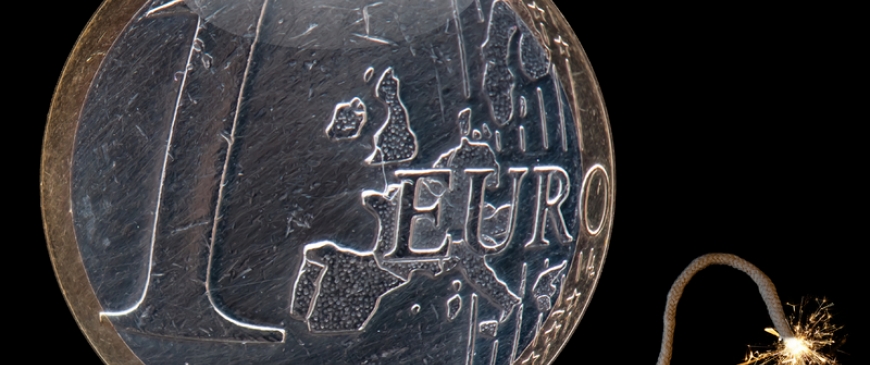
What if the eurozone broke up?
by Tomas Valasek
The future of the euro may not be secure, warned the CER’s Simon Tilford in a January 2009 essay. The current economic crisis threatens to exacerbate the tensions within the eurozone, and an insolvent member-state... could default and leave the eurozone. Since January, the economic crisis has deepened further, and the eurozone’s weakest economies have come under even greater strain. This does not make their exit from the eurozone inevitable there is a strong argument in favour of keeping the eurozone together at any cost. But what if it did happen? What would leaving the eurozone mean in practice? What happens to the physical currency in circulation in the afflicted country?
There is a considerable body of precedents. Most historical currency unions have broken up. The most recent examples come from Central and Eastern Europe. Since the end of the Cold War, three countries with national currencies the Soviet Union, Yugoslavia, and Czechoslovakia have fallen apart, forcing their constituent parts to hastily adopt national currencies. To find out what the separation entailed, the CER spoke to an architect of one of those transitions: the former member of the board of the Slovak National Bank, Ján Mathes.
We asked him what a country leaving the eurozone would use instead of the euro. Several options are possible, Mathes said. Members of the eurozone have not kept a stock of national currencies in reserve so they would need to print and mint replacements. But if a country is in a hurry to leave the euro, there may not be enough time. Minting a sufficient number of new coins takes months. Producing today's high-tech, secure banknotes, from design to the printing stage, took Slovakia nearly a year. Even though eurozone members would need less time they would presumably revert to the design they used before adopting the euro printing hundreds of millions of notes still takes many months.
If a country left the eurozone abruptly, it would need to find temporary ways to separate its share of the euros from the rest. In the early 1990s, the Czech Republic and Slovakia chose to stick distinguishing stamps on their banknotes. We had thousands of people working day and night, putting tiny stamps on nearly 80 million old Czechoslovak banknotes, Mathes said. The Czechs affixed different stamps to their portion of the old notes and the currency was thus divided. Each side eventually printed its own currency, and the stamped notes were withdrawn and destroyed.
But what worked for the Czechoslovak koruna may not work for the euro. Stamps are easy to remove and the temptation to remove them would be strong. The value of the currency of the country leaving the eurozone is certain to plunge vis-à-vis the euro, so its citizens would remove stamps en masse, thus converting them to the more valuable original euros. Another physical solution, Mathes says, it to laser-engrave distinguishing marks onto the portion of the euros, which would have been allocated to the country departing the eurozone. This can be done relatively quickly and would make the currencies irreversibly different, said Mathes, adding “but I suspect that the European Central Bank will not look kindly on a state burning holes in its currency.
In many ways, the birth of the new currency would only mark the beginning of its troubles. A country would only resort to leaving the eurozone if it was in deep economic crisis but this guarantees that its currency will inspire little confidence. There is a risk that the currency’s value would slide uncontrollably. To prevent such a scenario, the new money would have to be introduced in tandem with a thorough stabilisation and recovery programme overseen and financed by the IMF or the World Bank.
But the same reforms, if introduced early, would also reduce the chances of a country dropping out of the euro in the first place. And the rest of the eurozone members will have strong interest to prevent anyone from leaving, because of the risks to the rest: a member's departure would weaken the credibility of the euro, deepening the sense of crisis and possibly forcing other countries to drop out. Self-interest may drive the rest of the eurozone to prop up the ailing country’s economy at nearly any cost. It is probably too early for ordering replacement currencies or burning holes in the euro.
Tomas Valasek is director of foreign policy and defence at the Centre for European Reform.
